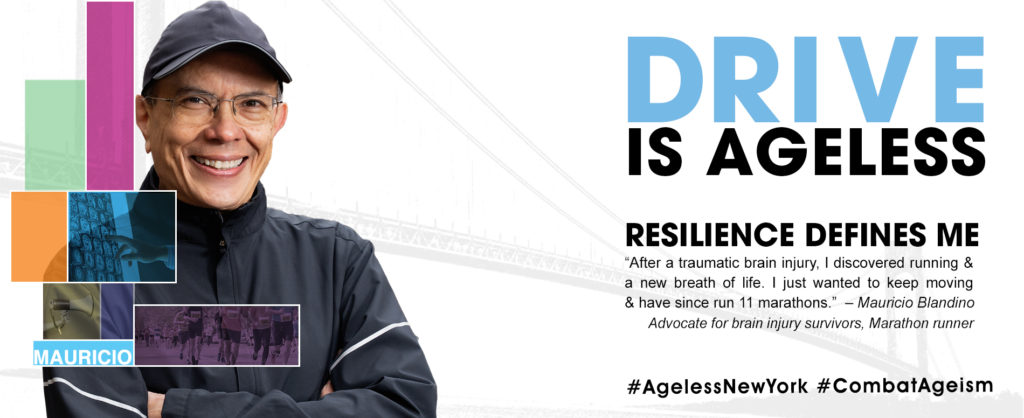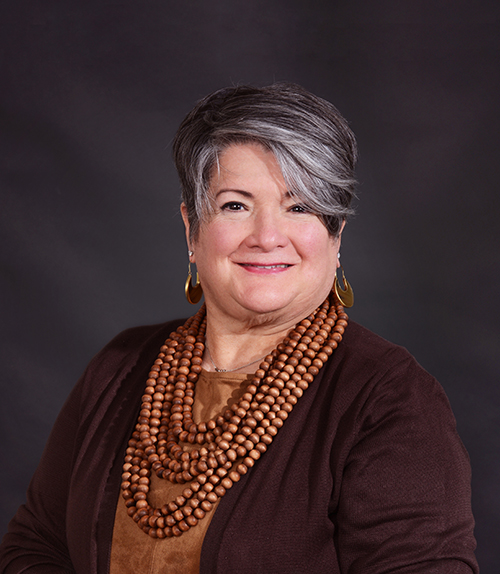
About Ageless New York
Aging is a natural part of life that begins once we’re born. At one point in our lives, we will all be young, middle-age or older. And while aging affects all of us, there are many prejudices against people because of their age. Like racism and sexism, ageism carries negative stereotypes and discrimination.
Ageism affects not only individuals, it also affects our workforce and communities. According to the U.S. Equal Opportunity Commission, almost a quarter of all claims filed by workers are related to age-based discrimination.
The Ageless New York campaign was launched to raise awareness about ageism against older adults.
The real New Yorkers featured in the campaign are not defined by their age, but instead by their passions, work, goals and aspirations. Each of them are unique in their own way, just as young and middle age people are. The campaign’s goal is for New Yorkers to question their own views on aging and ageism, and reframe their views on aging — learn to see the individual first and not the age.
New Yorkers are living longer lives. Currently, 1 in 5 New Yorkers is over the age of 60. New York City is committed to ending ageism, and helping our entire city prosper. Collectively, we can all work to ensure that all New Yorkers thrive in our City.
Commissioner’s Message

Two years ago, when I became Commissioner for the NYC Department for the Aging, one of my top goals for the Department was to combat ageism.
Ageism is one of the last discriminations that society must stand up and denounce. It is similar in many ways to racism and sexism in that it takes many forms, including prejudicial attitudes, discrimination, marginalization and practices that perpetuate stereotypical beliefs.
Ageism is so insidious and pervasive in our culture and in the media. Think of all the jokes that poke fun at older people being slow and forgetful, or the portrayals in film of older people being strange, silly and frightening. It is so common that it is often considered harmless. But it is far from harmless.
Prejudice and discrimination based on someone’s age has many negative impacts. In the workplace, older adults face age discrimination and are often bypassed for promotions, taken off major projects, or are usually the first to go when layoffs occur. Ageism also affects an individual’s health. Doctors and older patients will sometimes overlook or attribute symptoms as a “natural part of aging” where there may be a serious illness or disorder. Ageism not only harms individuals, it harms families and our communities, and it must be stopped.
The Department for the Aging launched “Ageless New York,” to challenge people to rethink their views on aging and raise awareness about ageism. The Ageless New York media campaign consists of a video and visual PSAs, and a website where New Yorkers can learn more about ageism and how to combat ageism.
It features real older New Yorkers who are active and defy the stereotypes that some have about older adults. They include a marathon runner, a business owner, a social worker, a musician, and a nonprofit CEO who started his organization after retirement. These men and women are our neighbors, our coworkers and are very much part of our community. They contribute to our City and help it make it better.
Lamentably, the contributions of older adults are not taken seriously. In film and television shows, older adults are usually not shown. When they are portrayed, it is likely to be done unfavorably with older adults shown as dependent and isolated. These images are powerful and affect our attitudes and expectations at a young age. Studies have shown that children as young as six begin to develop stereotypes about older people from the images they see in the media, and these stereotypes and beliefs are reinforced throughout their lifetime.
Most recently, ageism has surfaced in discussions concerning who within society should be able to take advantage of the limited COVID treatment resources. This thinking has led to undervaluing the lives of older people and neglecting the range of long-term services and supports that shape their lives.
It’s time to hit the reset button when it comes to our views on aging and older New Yorkers. There is so much we can accomplish in this City when we leverage and value the input and assets of all our residents, especially older New Yorkers.
Sincerely,
Lorraine Cortés-Vázquez
Commissioner
Partners
AARP New York Chapter
AARP Foundation
Age-Friendly NYC
Global Coalition on Aging
New York City Commission on Human Rights